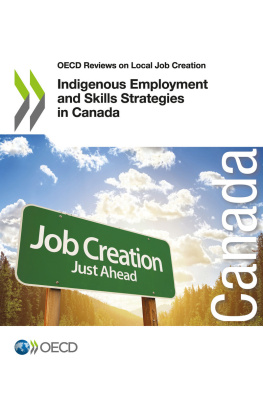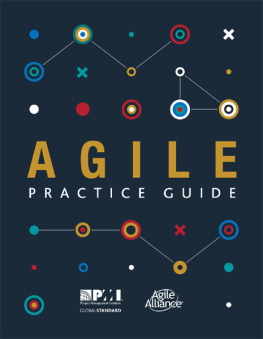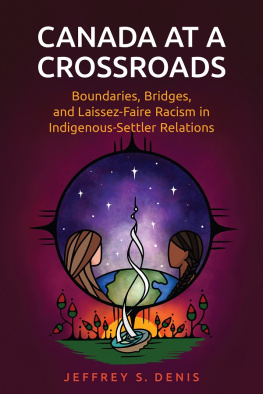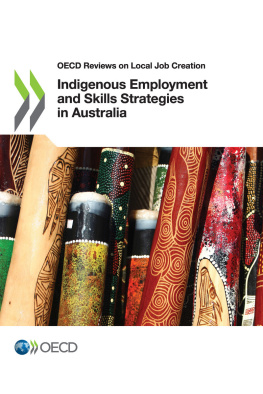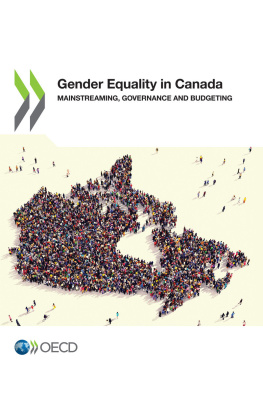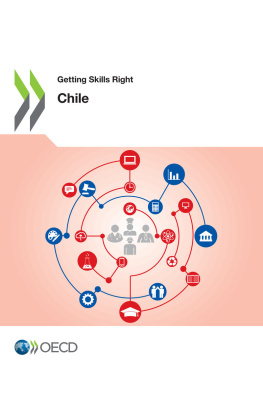coll. - Indigenous employment and skills strategies in Canada
Here you can read online coll. - Indigenous employment and skills strategies in Canada full text of the book (entire story) in english for free. Download pdf and epub, get meaning, cover and reviews about this ebook. year: 2018, genre: Politics. Description of the work, (preface) as well as reviews are available. Best literature library LitArk.com created for fans of good reading and offers a wide selection of genres:
Romance novel
Science fiction
Adventure
Detective
Science
History
Home and family
Prose
Art
Politics
Computer
Non-fiction
Religion
Business
Children
Humor
Choose a favorite category and find really read worthwhile books. Enjoy immersion in the world of imagination, feel the emotions of the characters or learn something new for yourself, make an fascinating discovery.
Indigenous employment and skills strategies in Canada: summary, description and annotation
We offer to read an annotation, description, summary or preface (depends on what the author of the book "Indigenous employment and skills strategies in Canada" wrote himself). If you haven't found the necessary information about the book — write in the comments, we will try to find it.
coll.: author's other books
Who wrote Indigenous employment and skills strategies in Canada? Find out the surname, the name of the author of the book and a list of all author's works by series.
Indigenous employment and skills strategies in Canada — read online for free the complete book (whole text) full work
Below is the text of the book, divided by pages. System saving the place of the last page read, allows you to conveniently read the book "Indigenous employment and skills strategies in Canada" online for free, without having to search again every time where you left off. Put a bookmark, and you can go to the page where you finished reading at any time.
Font size:
Interval:
Bookmark:
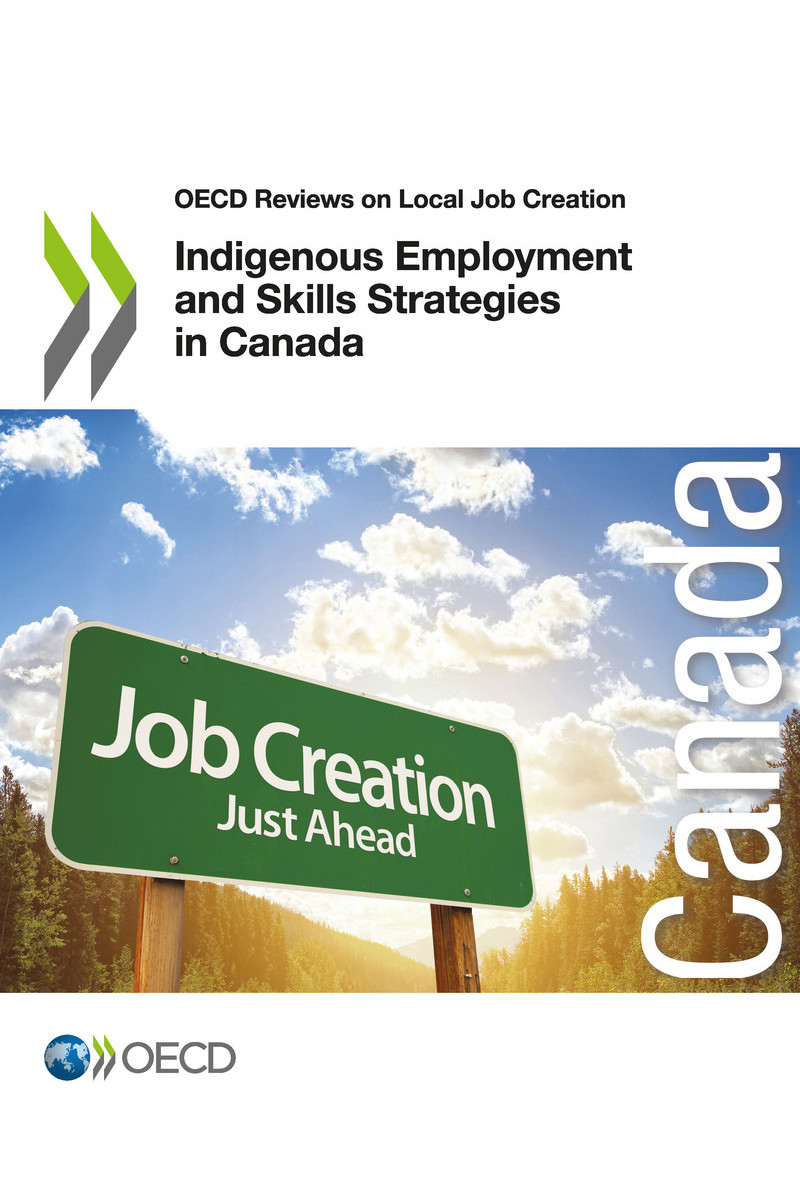
OECD (2018), Indigenous Employment and Skills Strategies in Canada , OECD Reviews on Local Job Creation, OECD Publishing, Paris.
https://doi.org/10.1787/9789264300477-en
Across many OECD countries, Indigenous People represent an important and growing demographic group with a unique set of cultures and customs. In a local development context, many Indigenous People are within remote areas and face unique challenges in finding quality employment and economic development opportunities. They often experience lower outcomes than the non-Indigenous population on a number of key economic and social indicators.
Well-designed employment and skills policies are fundamental to link Indigenous People to high quality jobs, while also contributing to broader economic development objectives and inclusive growth. The OECD LEED Programme has built a large body of evidence on what works for disadvantaged groups, including Indigenous populations over the past 35 years. This work has demonstrated the importance of providing more autonomy to the local level to enable policy innovation. With regard to Indigenous People, this is critical in supporting the principle of self-determination.
In consideration of the Truth and Reconciliation Commission of Canadas Calls to Action, this report is set within the context of furthering the restoration of Indigenous rights at the national, regional and local level. To do so, this report analyses employment, education, job creation and local development outcomes of Indigenous People within Canada. After determining the barriers preventing Indigenous People from reaching better outcomes, the report proposes potential ways forward for Indigenous labour market and skills programming.
With this report, the OECD hopes to place Indigenous voices at the forefront of the discussion and looks to Indigenous communities as the leaders of local, regional and national change.
I would like to warmly thank Employment and Social Development Canada for their active participation and support of the study, and for their ongoing partnership with the OECD. I would also like to sincerely thank the Indigenous organisations that actively participated in this study and provided critical feedback on the report.

Lamia Kamal-Chaoui
Director, Centre for Entrepreneurship, SMEs, Regions and Cities
Ensuring that Indigenous People have access to quality job opportunities that align with their unique cultural identity is integral within on-going efforts to support inclusive growth in Canada. This report is part of overall work being conducted on Indigenous People within the OECD Centre for Entrepreneurship, SMEs, Regions, and Cities, considering how to best design local employment and skills strategies, as well as how to better link Indigenous communities to regional development efforts. This report builds on previous work conducted in Canada as part of the OECD Reviews on Local Job Creation of the LEED Programme, which looked at Indigenous employment and skills policies in the Yukon and Saskatchewan in 2016.
Over the past few years in Canada, the federal governments has repeatedly affirmed its commitment to renew its relationship with Indigenous People based on the recognition of rights, respect, co-operation and partnership. At the federal level, the majority of active labour market and skills programmes are managed by Employment and Social Development Canada (ESDC). ESDC has a suite of programmes which are delivered at the local level through the Indigenous Skills and Employment Training Strategy (ISETS) and Skills and Partnerships Fund (SPF). The federal government has conducted extensive engagement with Indigenous leaders, service delivery organisations, academic institutions and provincial and territorial governments to consider the best way forward to renew its active labour market programmes to ensure they are responsive to the needs of Indigenous People.
This report uses methodological triangulation to consider quantitative and qualitative data regarding employment, skills, and entrepreneurship opportunities for Indigenous People in Canada. It also takes a case study approach to better understand policies and programmes, which have demonstrated success in matching Indigenous People to jobs, while also building their skills and attracting new economic development opportunities.
Results from this study were discussed at the Community Economic Development (CED) annual event in September 2017, ECONOUS 2017, bringing together 380 delegates and community leaders across Canada. During this event, the OECD organised a workshop, which brought together Indigenous leaders, service delivery organisations, as well as federal and provincial government officials to discuss the key challenges facing Indigenous People and innovative programmes, which are achieving better outcomes.
In-depth interviews and analysis were undertaken across four case studies, which are implementing organisations of the ISETS: 1) Centre for Aboriginal Human Resources and Development (CAHRD): 2) Community Futures Treaty Seven; 3) MAWIW Council; and 4) Kiikenomaga Kikenjigewen Employment and Training Services (KKETS). In Canada, the realities of Indigenous People have to be examined along four distinct groupings including First Nations on-reserve, First Nations off-reserve, Inuit, and Metis. These case studies are primarily focused on First Nations off-reserve to provide valuable insights that can inform policy making on Indigenous programmes within urban areas in Canada. The results show the importance of fostering Indigenous leadership and providing Indigenous People with high quality job opportunities. It should be acknowledged that there are some limitations to the lessons that can be drawn given the unique diversity of Indigenous communities across Canada.
Font size:
Interval:
Bookmark:
Similar books «Indigenous employment and skills strategies in Canada»
Look at similar books to Indigenous employment and skills strategies in Canada. We have selected literature similar in name and meaning in the hope of providing readers with more options to find new, interesting, not yet read works.
Discussion, reviews of the book Indigenous employment and skills strategies in Canada and just readers' own opinions. Leave your comments, write what you think about the work, its meaning or the main characters. Specify what exactly you liked and what you didn't like, and why you think so.

